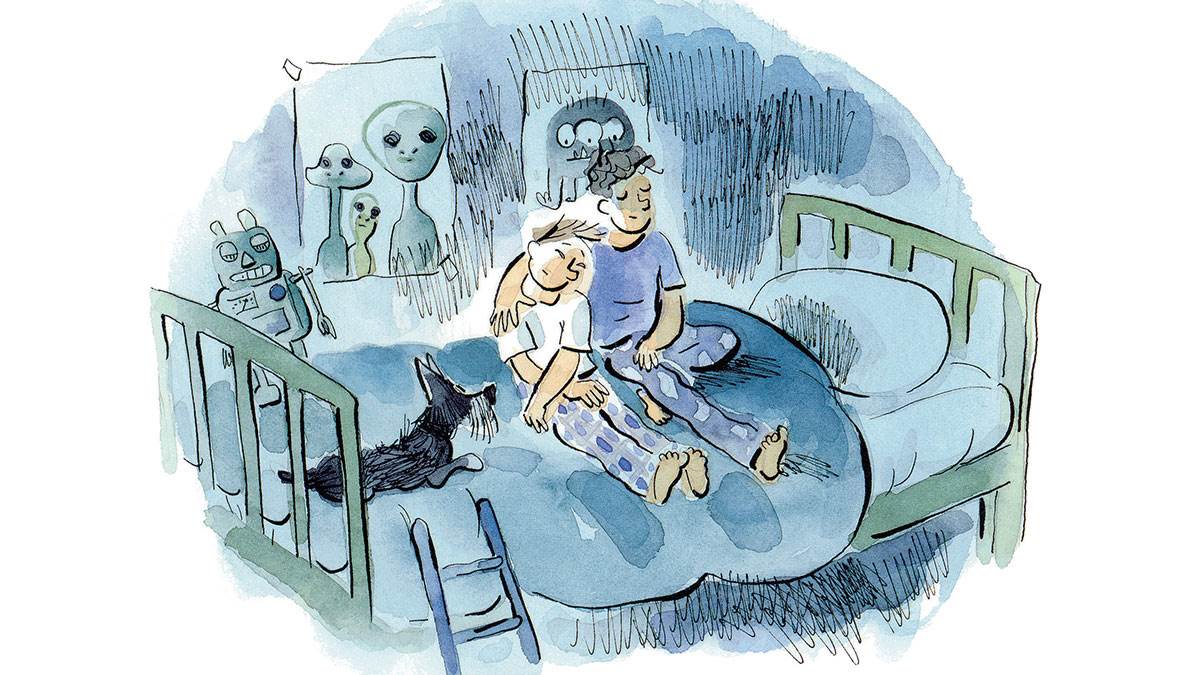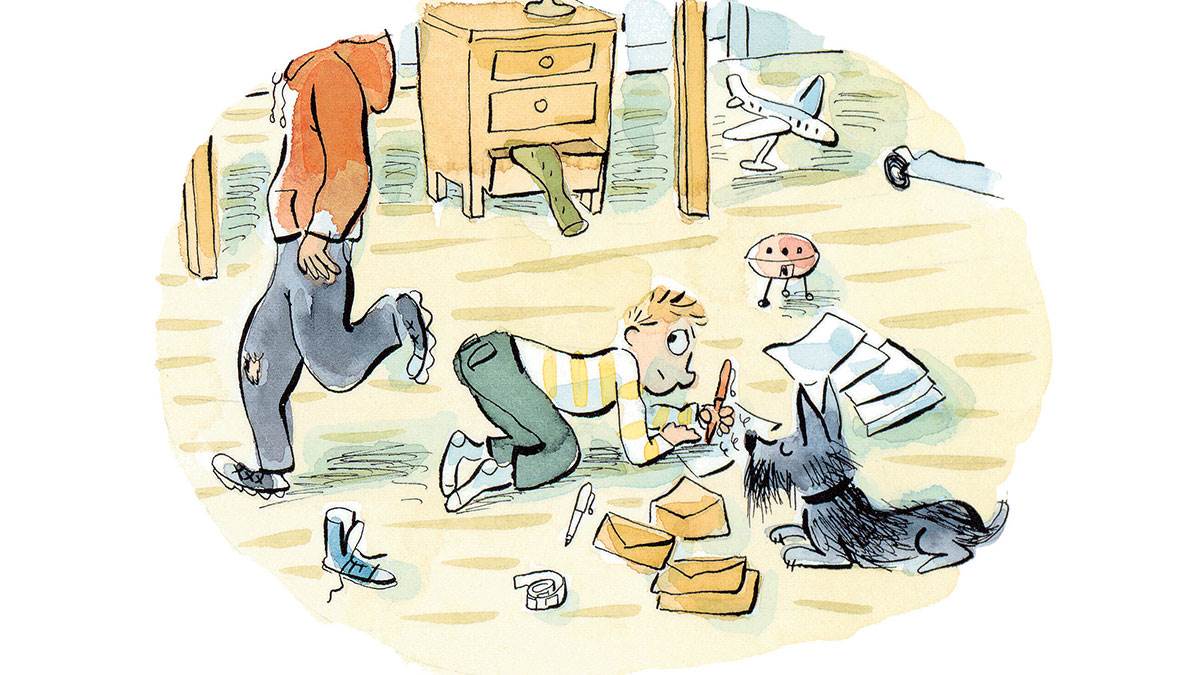Here's how to stop our kids feeling scared and powerless about the world
Published on: 20 May 2019 Author: Sophie Siers
There are a lot of big issues in the world today. Even the grown-ups are struggling – so how much should we discuss all of it with our children? Author Sophie Siers gives her take on how to make kids feel happy and resilient in these turbulent times.

Illustrations by Anne Villeneuve: taken from Dear Mr President by Sophie Siers
World politics seems to be dominating headlines at present, from climate change to Brexit, with Donald Trump in the middle. A common theme among parents of younger children is how we should discuss these events, or whether we should discuss them at all. The availability of internet access means that information we may well have chosen to keep from our children in the past is now available to them 24 hours a day.
I wonder if it’s useful to young children to know so much of world politics and events? Is there any advantage to them? My suspicion is not! Actually, I wonder if it’s part of the reason we are seeing rising anxiety and depression issues in our young people. The problem is that they know so much about what’s wrong in the world but can’t do anything to right it.
Feeling powerless in the face of rising world problems is depressing for many adults who have the capacity to affect change; imagine how that feels to a 10-year-old who is still learning to tie their laces so they don’t undo every five minutes!
How can we help kids feel happy?
I’m an unapologetic censor and support any parent doing the best to lock up anything they can, but I wonder if a new way of looking at this problem is to first ask ourselves what sort of adults we want our children to become.
The stock answer that most parents will give is that they just want their children to be happy. But how is this happiness achieved and what effect does our parenting have on this goal?
Modern parenting is taking many new forms, but I see a pattern of parenting that seems to consist of many extracurricular activities, personalised meal plans and families that revolve around the child rather than the family. Parents are also providing children with high-tech devices and the latest phones. It seems to me that many children are rich in material possessions and activities but may lack the basic skills that help them contribute to family and social life.
It’s an interesting fact that "contributing" is now shown to lead to a sense of fulfilment, and fulfilment to a sense of happiness. The current craze of "happiness indicators" show us that a significant aspect of happy people’s lives is their ability to contribute in meaningful ways. People who volunteer, say in the local animal shelter, have the highest happiness levels of all the groups surveyed. Harvard Health has published research that shows that weekly volunteering leads to happiness levels comparable to a life-changing salary boost. So working with and teaching our children ways to contribute is actually a more effective way of meeting our desire to make them happy!
Overwhelmed and distressed

What does this mean in relationship to talking about world affairs with our children? Well, I think we need to recognise the level of distress that can be caused by sharing too much of what’s wrong.
My own daughter was overwhelmed by the pictures she was shown of the floating plastic rubbish island in Hawaii. It’s as big as France and the story came with images of choked turtles and seabirds. She was so distressed but incapable of fixing it; a 12-year-old doesn’t know how to even start to manage a problem of this magnitude.
Of course, we can teach how little change can lead to big change; we can take family actions that contribute, such as only using reusable bottles, no plastic bags, etc. But the bigger issue is that an 8 or 10-year-old just isn’t developmentally equipped to be able to deal with the size of the problem.
So, what can we do?
Let's teach useful life skills
Let’s build skills in our children that mean they can contribute and develop capability. Teach them good old-fashioned skills like how to make some soup or bake a cake for a friend or relative who is sick. Get them to read the newspaper once a month to some elderly people. If they play an instrument, get them to play at the retirement home while they are there. Make a tiny garden or a big one and make sure they can plant and weed a row of lettuces. Make sure they can use a screwdriver, change a lightbulb, and use a hammer.
All of this means they will be able to do things that can contribute to all sorts of situations. As they grow into teenage years, they will find they have skills to make other people’s lives easier, which is a very empowering feeling – one that many of our young folk don’t have. Let’s talk to our children about perceiving need in others; get them to notice what needs to be done for someone else.
I’ll never forget the day I came home with my new baby and the boy next door had mowed my lawns. I try to forget that he mowed a lot of my new hedge, as well… But what a wonderful thing for him to think of doing!
Success in children is built on small everyday events, and contributing in a meaningful way is one of the best skills we can give our children. Let’s use the world’s issues and current affairs to spark interest in skills that can be useful for life.
Save adult problems for adults
What really matters in a child’s life?
Learning to listen; communicating and working together in our families and communities.
Help children make fun of having less but doing more.
Let’s remember to tell our children not to worry about "The Wall" or climate change; remind them that these are adult problems and that as they grow up, they will have lots of new ideas to help with the problems at that time.
Teach your children how to do things; it’s the best way we can help grow these beautiful young people into adults who will be able to work constructively (and happily) in the future that is coming towards them.
Sophie Siers' children's book, Dear Mr President (Templar Publishing), is out now, illustrated by Anne Villeneuve.
Put your child in another person’s shoes with these books about kindness
Topics: Politics/human rights, Features






Add a comment